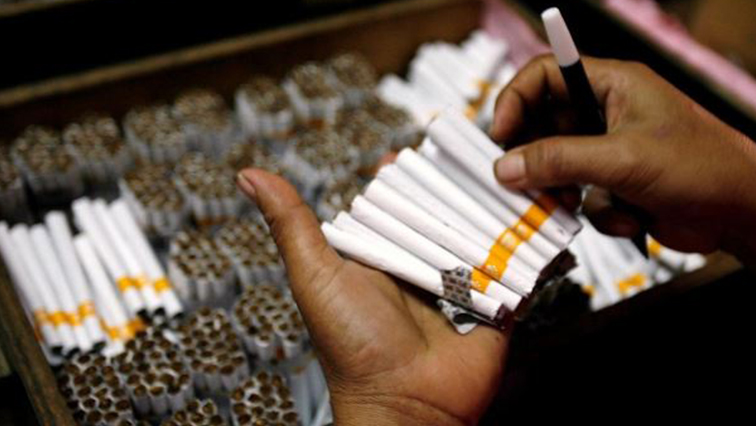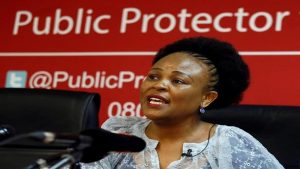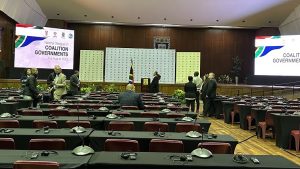The African Transformation Movement (ATM) is accusing government of failing to effectively combat the scourge of illicit trade and financial flows.
The party says the unregulated informal economic sector has become the breeding ground for illegal foreigners to apply their criminal trades.
Party leader Vuyolwethu Zungula tabled a motion in the National Assembly requesting a discussion on the impact of unregulated informal sector as the reason for the increase of the circulation of counterfeit products, illicit trade, financial flows and security vulnerability on the country’s economy.
Zungula says it is unfortunate that this challenge has reached this point despite the many laws available to fight the growing trend.
He blames the lack of government inability to apply relevant laws to fight illicit trade.
Illicit trade estimated to cost SA economy about R100 billion every year:
“It is also reported that, spaza shops and general dealers that are operated by people that are illegal in the country fund terrorists’ activities. Basically, the country the country not enforcing laws is indirectly responsible for some terrorists’ activities. The fact that these traders are illegal in the country and do not use South African bank accounts makes it easier for them to move monies around and fund terrorists’ activities. The porous borders enable all this criminality, gun and drug trafficking, goods smuggling, human trafficking is more commonplace in our country. The lack of action to the government to address this core problem makes it complicit in all of these crimes.”
In her response, Deputy Minister of Small Business Development, Dipuo Peters defended government.
“We are working with groups to strengthen the investigation, detention and combating of illicit trade and financial flows. There is also increase collaboration with regional and international law enforcement agencies. Over the past few years there has been confiscation and seizure of billions of rands of illicit goods, mostly at our ports of entry.”
However, Zungula maintained that the insufficient implementation of the law is the main reason that people who are in the country illegal can easily operate their businesses.
“The poor enforcement of such laws have turned our country to be the world’s playground where people can come from anywhere everywhere to play with the health of citizens and drained the economy and brings serious security risk. The laws are very clear if you are not a South African citizen and you want to operate a business, firstly you must be legal in the country and invest a minimum of R1 million. 80% of the staff employed must be local citizens. You must use a South African bank account and the company must be properly registered. The reality however paints a different picture. People come and do as they please as they doing the utmost best to displace the people.”
The Deputy Minister says the problem of an unregulated informal sector is not just a South African challenge alone.
“The informal sector is that part of the economy which is not regulated that is neither taxed nor regulated by any form of government. Here we need a multidimensional view of the informal sector. We need to differentiate between the informal sector that provides livelihoods, opportunities to millions of the most countries vulnerable individuals such as the urban poor, the female heads of the households, disabled people, and rural based families from the illicit underground economy run by organised criminal syndicates. The illicit economy runs by syndicates involves products and services which are illegal including narcotics and illegal imported counterfeit cigarettes and alcohol.”
She says about R20 million is going to be allocated for this year alone to increase the grant provided to fund the informal sector.






